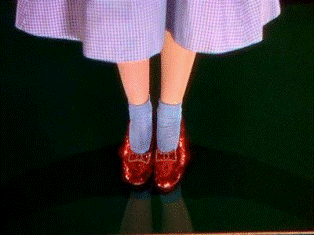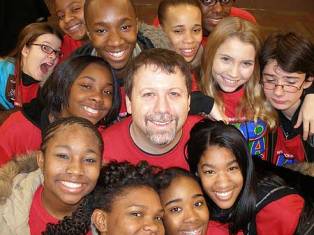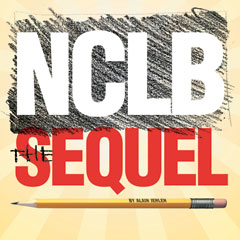Dewey 21C: August 2008 Archives
- Joel Klein, Chancellor, New York City Department of Education
- Ramon Cortines, Senior Deputy Superintendent, Los Angeles Unified School District
- Arne Duncan, CEO, Chicago Public Schools
- Rudy Crew, Superintendent, Miami Dade County Public Schools
- Carol R. Johnson, Superintendent, Boston Public Schools
- Arlene Ackerman, The School District of Philadelphia
- Michelle Rhee, Chancellor, District of Columbia Public Schools
- Randi Weingarten, President, American Federation of Teachers
- Reg Weaver, President, National Education Association
- Checker Finn, President, Thomas B. Fordham Foundation
Okay, here's five more, that cross the threshold from power to influence:
11. Cyrus Driver, Deputy Director, Education and Scholarship, The Ford Foundation
12. Sarah Cunningham, National Endowment for the Arts
13. David Shookhoff, Manhattan Theater Club/New York City Arts Education Roundtable
14. Gigi Antoni, Big Thought of Dallas
15. Eric Booth, Consultant

 So, what is a parent to do? On one hand, you've got the New York City Department of Education unveiling standardized tests for kindergarten through second grade students, some of which are as long as 90 minutes.
So, what is a parent to do? On one hand, you've got the New York City Department of Education unveiling standardized tests for kindergarten through second grade students, some of which are as long as 90 minutes. (And if you think you shouldn't worry as you don't live in New York City or your child attends private school, think again. The New York City Department of Education has a mighty, mighty PR machine, and they are bound to convince the nation to follow suit, or at least try to convince the nation.)
On the other hand, an opinion piece in the Wall Street Journal by two researchers at a libertarian think tank are warning parents to protect their children from potential damage caused by preschool. These two researchers are urging Barack Obama to forgo support for preschool, and to focus instead on fixing the dysfunctional K-12 system by providing vouchers for everyone.
They cite, among others, a Stanford study positing "that children who spend more than 15 hours per week in preschool were less motivated and more aggressive in class." Considering that 70% of America's children are in preschool, well, that leaves us with a whole lot of aggressive and unmotivated kids.
So, there you have it: standardized tests beginning to reach into the early grades, while preschool is being discredited. Yikes, that's an odd thing to write--preschool being discredited.
Certainly, parents who send their kids to private schools are used to the testing part, in light of the tests given to determine admission to the many highly competitive private elementary schools.
For those who ask why we can't manage to provide reasonable minimum instruction in arts at the elementary levels, not to mention middle and high schools, answers to that question are embedded within these two articles.
My daughter is attending a preschool come September for 15 hours per week. It's a school she attended last year for three hours per week, which was extended into a nine hour per week summer camp. The preschool is a wonderful, loving environment in which my daughter thrives. I had no idea that this would lead to her becoming aggressive and unmotivated.

The public school battles will surely continue, and between testing, charter schools, vouchers, small schools, and so many other issues, it's sometimes easy to lose track of the fundamental reason why there are public schools.
So, for this last week of August, let's consider what Albert Shanker thought about the core rationale for public schools. Shanker was the long-term head of the American Federation of Teachers and the United Federation of Teachers. He was immortalized by Woody Allen in the movie Sleeper, where the lead character wakes up in the future to learn that civilization was destroyed when "a man by the name of Albert Shanker got hold of a nuclear warhead." Shanker was many things, including the person who shut New York City down when he led a series of strikes in the 1960's. Shanker is the father of the charter school movement, although his vision for charter schools was vastly different than what is behind the charter movement today. Shanker is also considered the father of the standards-based movement. There's a terrific biography out on Shanker--it's in my books list to the right.
So, who could possibly be a better choice when looking for a signature quote as we careen towards the first day of school and the Labor Day weekend, but one of the greatest labor leaders ever, who was also one of the central figures in education during the second half of the 20th century. Here's Albert Shanker on why we have public schools:
"To teach children what it means to be an American."


Every month or so, I am going to highlight an organization and/or person doing terrific work in arts education. It may be in K-12, or adult education, youth development, or even branch out beyond arts education per se, to another area of education.
If you don't already know Mosaic Youth Theater of Detroit, I am happy to introduce both Mosaic and Rick Sperling, its Founder and CEO.

I had the great pleasure of seeing a production a year or so ago, and have also heard Rick present at a couple of conferences.
Mosaic's Mission and Vision are:
"Mission Statement
Mosaic's Mission is to empower young people to maximize their potential through professional performing arts training and creation of first rate theatrical and musical art.
Vision Statement
By definition, a mosaic is an array of different pieces joined together
to create a work of art. Accordingly, Mosaic Youth Theatre is founded
on the richness of difference. Our young artists come from over 50 city
and suburban schools, and a variety of social, economic, racial,
cultural and religious backgrounds. Through our professional performing
arts program, these young artists blend their ideas and talents and
achieve excellence in their theatrical and musical performances. Yet,
their success is perhaps best measured by how they excel in life. We
proudly report that over 95% of Mosaic artists graduate from high school and go on to college."
Mosaic is an example of the great variety of approaches to "arts education." Mosaic's approach is youth development through the arts model. (The whole youth development arena is interesting and rich, and I will come back to it in future blogs.)
There's a recent report that goes a long way towards telling their story and explaining their model. Take a look, you'll be glad you did.
 Dwight D. Eisenhower, 34th President of the United States and supreme allied commander, introduced the term "Military Industrial Complex," in his 1961 farewell speech before leaving office. He had wanted to call it the "Military Industrial Congressional Complex," but decided it was too confrontational. Ike worried that "this conjunction of an immense military establishment and a large arms industry is new in the American experience." He went on to state that "we must never let the weight of this combination endanger our liberties or democratic processes." Hello Hallibuton and Blackwater.
Dwight D. Eisenhower, 34th President of the United States and supreme allied commander, introduced the term "Military Industrial Complex," in his 1961 farewell speech before leaving office. He had wanted to call it the "Military Industrial Congressional Complex," but decided it was too confrontational. Ike worried that "this conjunction of an immense military establishment and a large arms industry is new in the American experience." He went on to state that "we must never let the weight of this combination endanger our liberties or democratic processes." Hello Hallibuton and Blackwater.Okay, back to the topic at hand. There's a must read piece in the September edition of Harper's Magazine: "Tyranny of the Test, One Year as a Kaplan Coach in the Public Schools, a first hand account by a former school teacher of his work in schools providing test prep for Kaplan K-12. Unfortunately, you have to buy or subscribe to read the entire article. It's well worth it. (Did you know that Harpers is owned by the John D. and Catherine T. MacArthur Foundation?)
The matter of test prep is of paramount importance to access to arts education for public school students. You see, it's not just an issue of the time necessary to take the tests. It's also the accompanying preparation. You not only have teachers "teaching to the test," considered by many to be "kill and drill," but all sorts of extended interventions, such as teaching how to take tests, etc.
This doesn't leave much time for subjects like art, music, dance, theater, etc. Not to mention physical education, foreign languages, geography, etc.
While Paul Peterson believe the Educational Industrial Complex began once teacher unions were given the right to collective bargaining, there are others who see the significant rise of for-profit companies providing test prep, assessment, and other "supplemental education services," as the new Educational Industrial Complex.
What would Ike think? Would he worry about this new intersection of the schools with an education industry, amped up by Federal legislation?
You can't get around testing. It's never going away, nor should it. The larger question is whether we've reached diminishing returns with the current culture and business of testing, and what the negative implications are for subjects like arts education, which don't live in that culture.
For the
past year or so I was a member of an Arts Education Task Force established by
the New York City Department of Education. The Task Force looked at two
particular areas: quality and data. Quality was about defining and ensuring
"high quality" arts education; data was about providing feedback and
advice to the Annual Arts in the Schools Report. The Task Force had two
subcommittees, one for each of the focus areas. Overall, the Task Force, a
who's who of arts education in
Many people believe the Task Force was created as a result of criticism over the elimination of a long term categorical funding line for arts education: Project Arts. If you click on the link, you'll notice that the NYCDOE isn't providing much information about Project Arts. Perhaps this link is a better choice if you want to know more.
The schools chancellor, Joel I. Klein sent an email recently to each Task Force
member, thanking them for their work, updating them a number of issues, and introduced
four questions of concern going forward.
Let's just call them, for the moment, the four questions of arts education.
It's not all that often that you will receive an email or just about anything
from a school district superintendent about arts education. The most you would
usually get would be some sort of platitude laced statement about the critical importance of arts education, etc. I would also note that the email was not marked confidential.
These four questions are not the usual platitudes. There are certainly multiple ways of
interpreting these questions. For the moment I will hold off on providing
any interpretation of my own.
Here they are, what do you think?
Four questions about arts education from schools chancellor, Joel I. Klein:
1. What is the
relationship between inputs and outputs in
arts education?
2. Does an investment in arts professional
development pay
off in terms of student achievement in the arts?
3. What school-level variables are
prerequisites for
successful arts education delivery?
4. What are the common elements that can
be identified
among schools with strong arts programs?
 If you care about K-12 arts education, not to mention public education, not to mention children, well then it's impossible to get out from under NCLB. It may just be the greatest cause for education handwringing since Brown versus Board of Education in 1954.
If you care about K-12 arts education, not to mention public education, not to mention children, well then it's impossible to get out from under NCLB. It may just be the greatest cause for education handwringing since Brown versus Board of Education in 1954.There is a terrific online discussion hosted by Newtalk, with some true heavyweights in the education field. It was a three day discussion in response to the question: "Do we need a basic rewrite of No Child Left Behind?"
Among other heavyweights, you've got America's greatest education historian Diane Ravitch, Fordham Institute's Checker Finn, newly crowned AFT President Randi Weingarten, Manhattan Institute's Sol Stern, and Gerald Tirozzi from the National Association of Secondary School Principals.
For those who think they know what's what with NCLB, you want to read this. For those who want to learn more, well, click the link above for the online discussion.
Many people have assumed that everybody hates NCLB, except a small group of politicians and educators who crafted the legislation. That is simply not true. It's a huge subject and this discussion is a great way to learn more.

There's lots here to chew on here and I am guessing that this won't be my last post on this report.
While there are areas that appear weak, most noticeably the absence of a necessary and reasonable explication of what they mean by "coordination," and it should be noted that a number of the school districts complained heavilty after not receiving the glowing endorsement they believed they were entitled to, the biggest question I was left with centered in the nature of systemic relationships between school district officials and their external partners/community. I also think the report should have done more to examine the community of schools that are tied to the district, as well as the greater community the schools are situated in.
If you believe as I do that 'revitalization" or let's just say the development of efforts that result in providing high quality arts instruction and experiences to all public school students in a district, requires the involvement of community, well then, it bumps up against at least one major cultural/protocol issue.
Imagine you're a school district official whose job is to oversee arts education. You have been given authority (to a degree) and responsibility. However, you need to partner with the larger community to make this happen. But, real partnership occurs only when there is a sharing of authority and responsibility. There's the rub. It would require a very savvy, progressive, and risk friendly district administrator willing to share the authority for what they are being held responsible for. There are multiple paradoxes here.
As I said, lots to chew on. Lots of good questions will come from reading this report. An excellent jumping off point for a deeper conversation about access to arts education for ALL students.
It brings me to Sophie, my three-year-old daughter. As I wrote in my blog description, I believe that the arts are inherent to all children--that the arts are part of our DNA. I believe our responsibilities as parents and teachers include providing sustained pathways for children to discover and develop these inherent abilities. I observe it in Sophie all the time, through the songs she makes up, the dances she invents, the little bits of theater that emerge when she reaches into a page of a book we're reading, to grab the illustrated banana, rip it out into real life, and hand it to me to eat.
I try to provide all sorts of music for her to listen to, from Reich, to Bach, to Talvin Singh, to Carlene Carter, to you name it. What I find most interesting, is that she can always tell when the music was written for children, as opposed to adults. She will say to me: "daddy, that's daddy music. Don't you have some baby music to play?" While I would like to bequeath my music taste, I find it more interesting that at three, she's already developed musical taste. It will be interesting to see how it develops as she develops.
